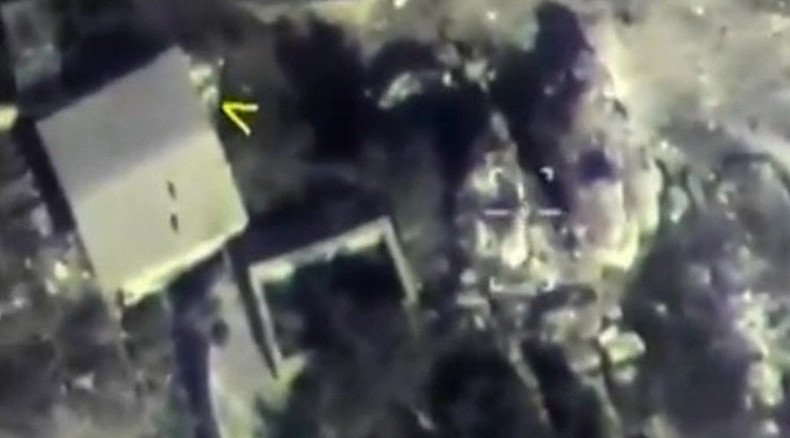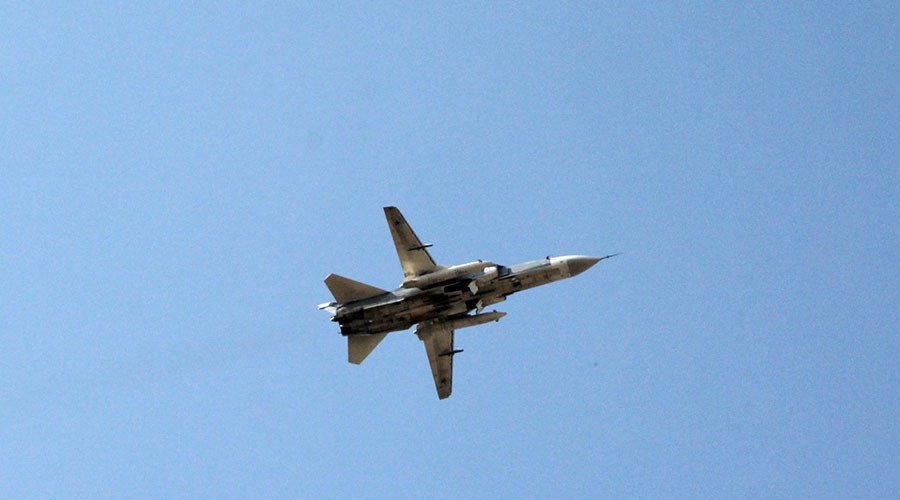US anti-ISIS campaign ‘cautious and restrained’

The rate of the US anti-ISIS attacks was too restrained and therefore brought little success, while Russia draws allies in Iraq and Syria as they look for additional firepower against terrorists, says Doctor Max Abrahms, Northeastern University in Boston.
RT: It has been a year since the U.S. began conducting airstrikes to destroy ISIL in Iraq and Syria. Why have the terrorists grown stronger over this time?
Max Abrahms: There is no question that the US has relied very heavily, indeed exclusively, on airpower against Islamic State both in Iraq and in Syria. And [Barack] Obama won the nomination from Hillary [Clinton] because essentially he opposed boots on the ground in Iraq. And the Israelis helped with this conviction of his of avoiding US boots on the ground in counter-insurgency campaigns. So, the US was very relying on airpower and yet is hasn’t been effective, it has not been effective in either Iraq or in Syria. The [ISIS] group hasn’t really expanded that much but nor has it contracted in general. So, overall I think there is no question the US military response to ISIS has been a real disappointment.
RT: Coalition forces have conducted about 13 strikes in Iraq and seven strikes in Syria each day. During the Desert Storm air campaign against Saddam Hussein in 1991 the average was 1100 a day. How can you explain President Obama’s reluctance to use airpower to its full potential to defeat ISIL?
MA: One of the major differences between Russia’s air campaign and the US air campaign against ISIS is the pace of attacks. The US is doing a number of sorties, but actually isn’t firing that often. To take Monday, for example, according to The Washington Post the US fired something like…five strikes in Syria against ISIS targets. And if you compare that to Russia which fired over 80 strikes against the terrorists. Clearly, the rate of attacks is very different between Russia and the US. I think that one of the main reasons why the Iraqi government has asked for Russian air support is precisely because the Russians have a much faster tempo in terms of using airpower whereas the Obama administration is very cautious and restrained. And I think this strategy has frankly been too restrained and that is why there have been so few successes against ISIS and why Russia continues to draw allies both in Iraq as well as in Syria as they look for additional firepower against these terrorists.

RT: Is America really trying to defeat ISIL? If not, what are the true objectives of the American air-campaign against ISIL?
MA: The White House never really decided whether they wanted to focus taking out ISIS or regime change in Syria. In a way, the White House has tried to achieve both. The White House has tried to build up a moderate rebel force which presumably would have been an alternative to both ISIS as well as the Assad government. Although the CIA and the Pentagon have tried to build up those moderate rebels the US didn’t want to go too far and agree to a ‘no-fly’ zone. And this allowed the Syrian military to attack the rebels. I think that if Obama truly wanted to remove the Assad regime above all else, [he] would have committed to this ‘no fly’ zone and invested even more heavily in the rebels. But Obama really tried to have it both ways. And that is why we’ve seen this very confused policy especially in Syria. It seems that the White House is backing away from the idea of arming the so-called moderate rebels largely because the US has been unable to find the so-called moderate rebels. And now instead of trying to find these rebels and … and training them the US is instead relying on a smaller force of those who have already demonstrated their political preferences in basic alignment with the US…
RT: Could Russian airstrikes push the US to increase their efforts in the fight against ISIL at least to preserve its image abroad?
MA: I could imagine that in response to the height and tempo of Russian airstrikes in Syria the US may also elevate its own tempo. Because the reality is that both the US and Russia want to appear as if they are the superior power when it comes to counter-terrorism, especially combating ISIS and to a lesser extent Al-Qaeda. And the fact that Russians are firing at such a fast rate incentivizes the US to also increase the tempo in order to appear as an effective counter-terrorism force. I think that the Iraqi government is now moving into Russia’s camp and actively seeking their assistance against ISIS is an embarrassment for the US which has tried to lead this coalition against the group without a while lot success.
LISTEN MORE:
The statements, views and opinions expressed in this column are solely those of the author and do not necessarily represent those of RT.












